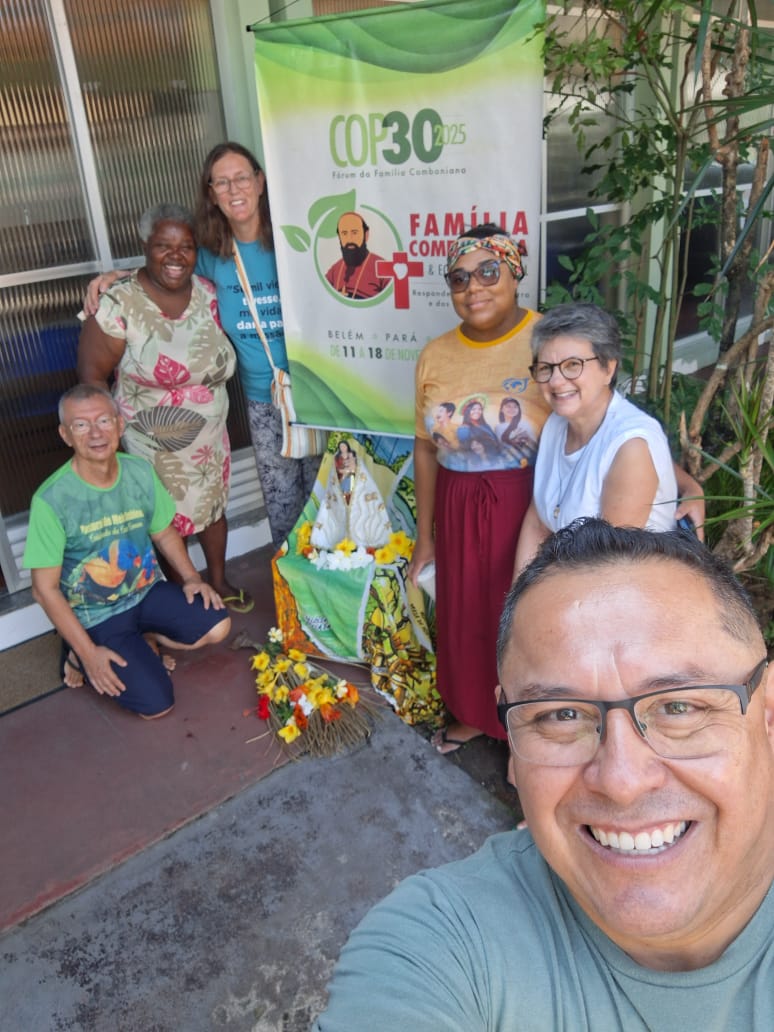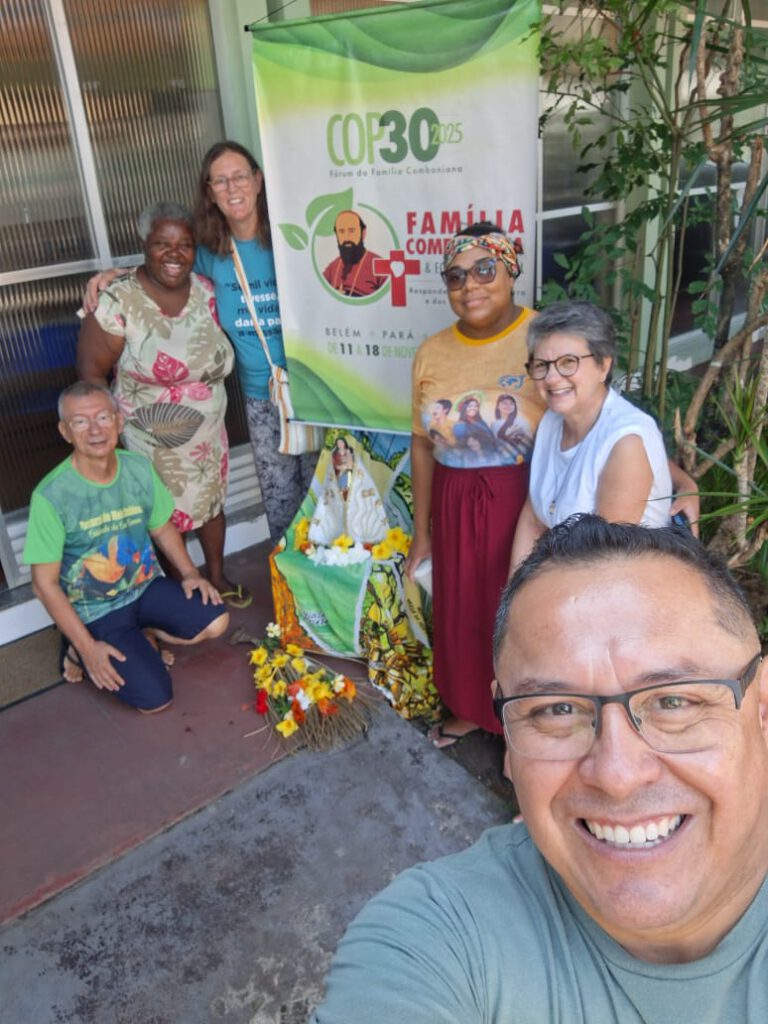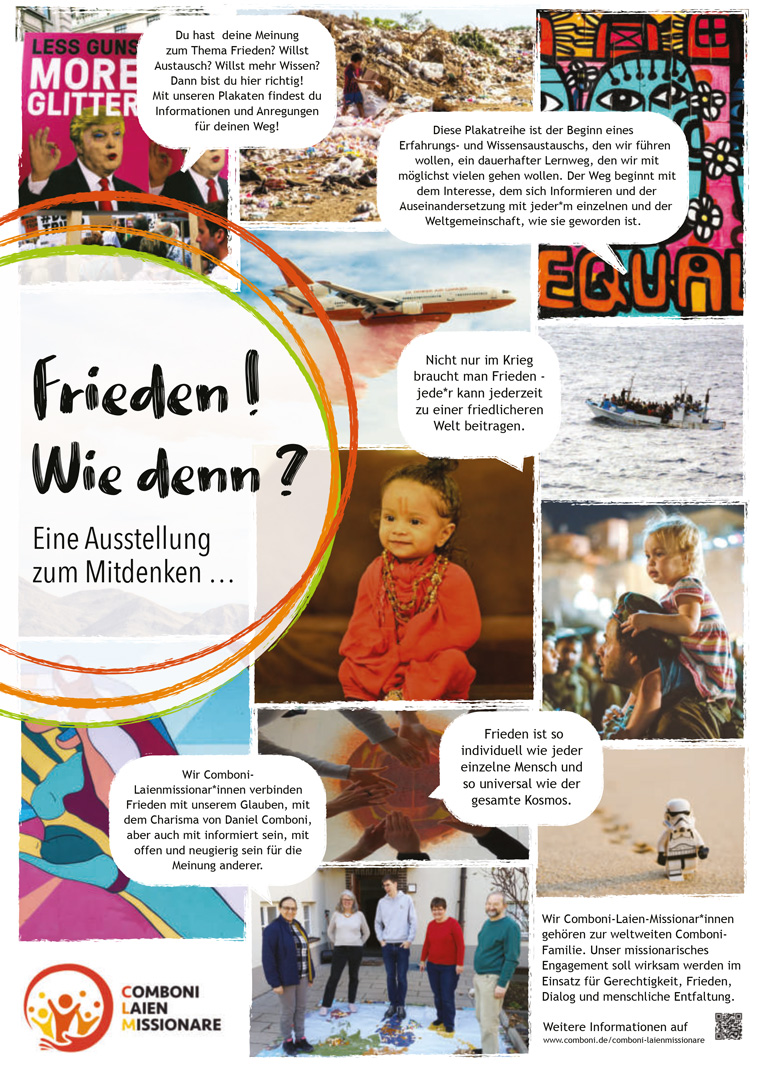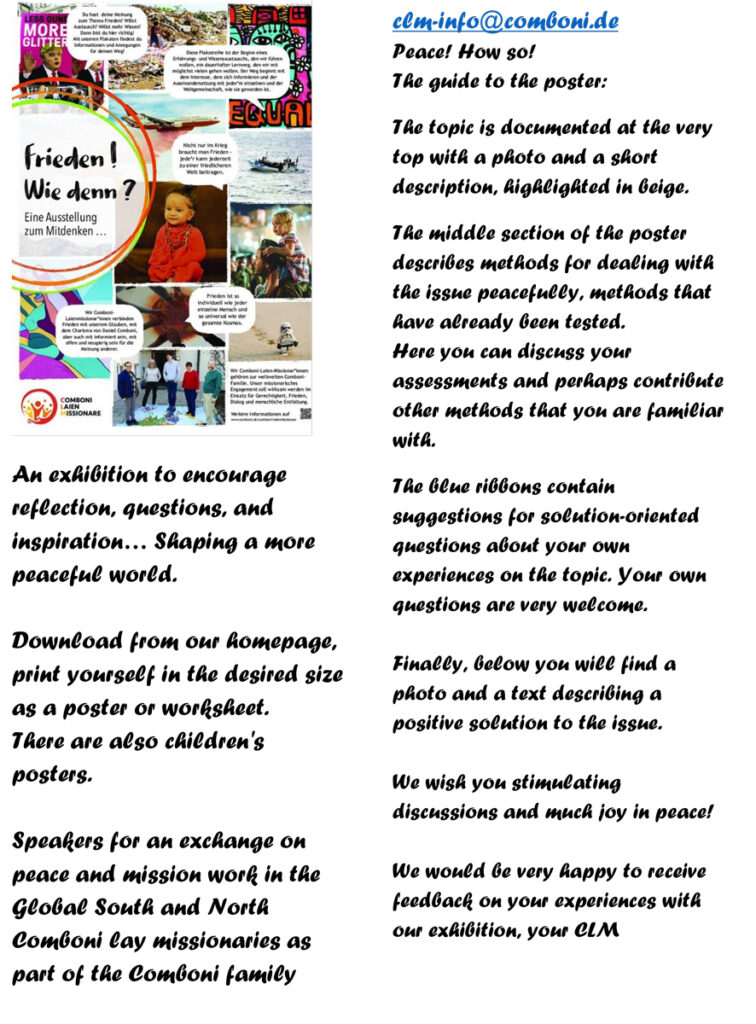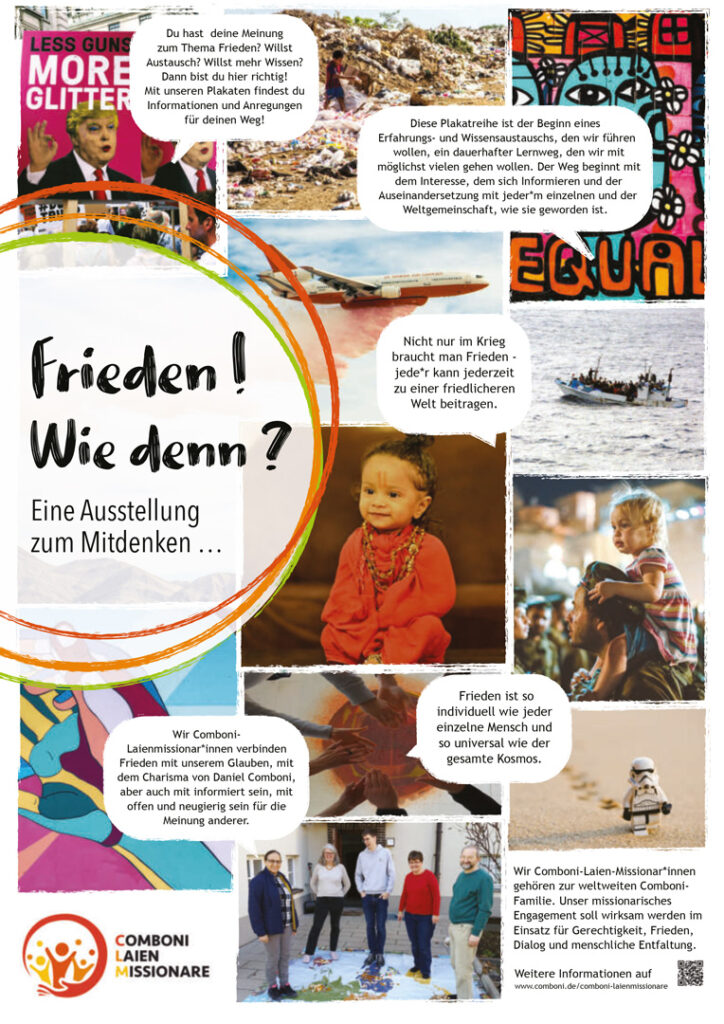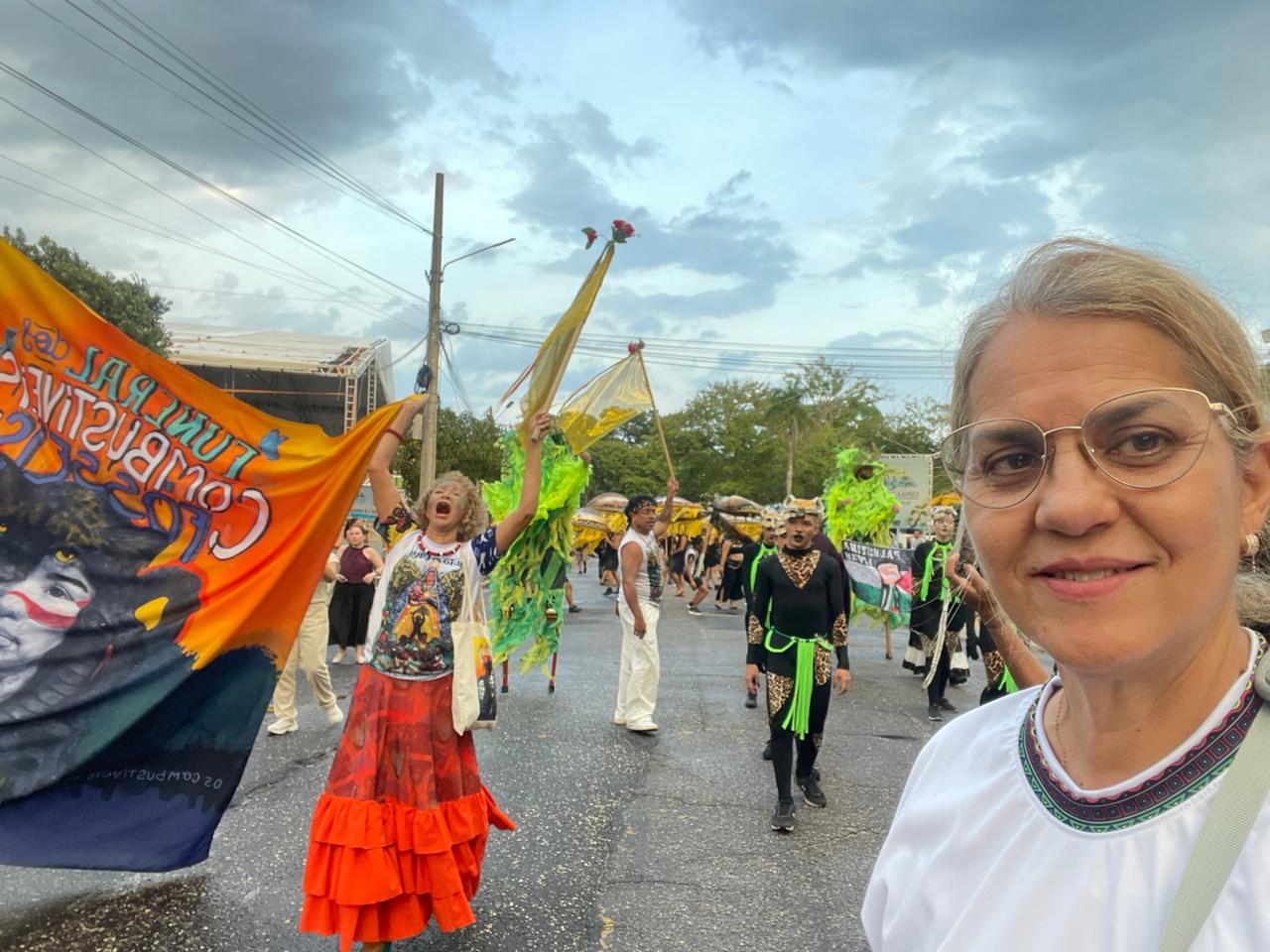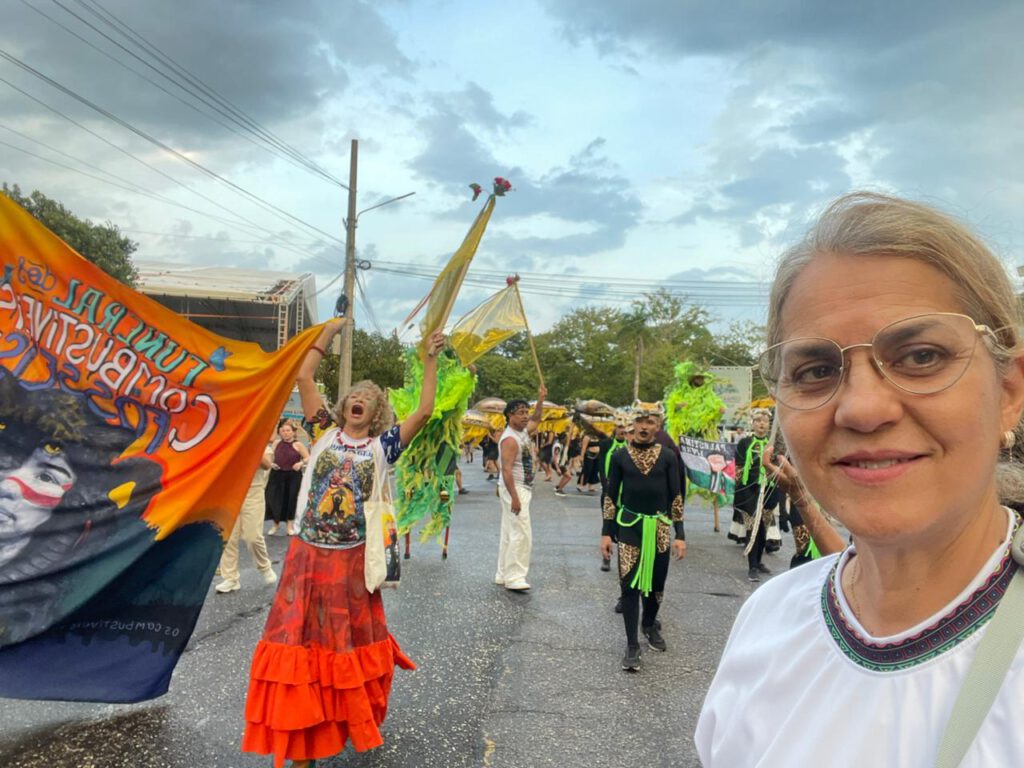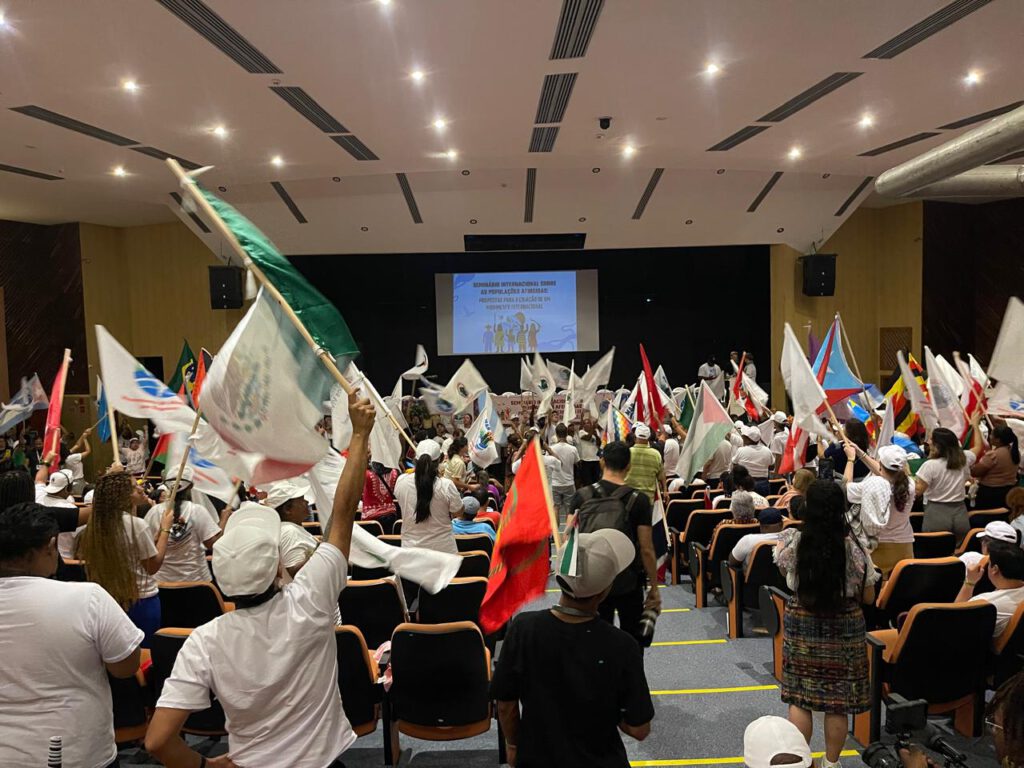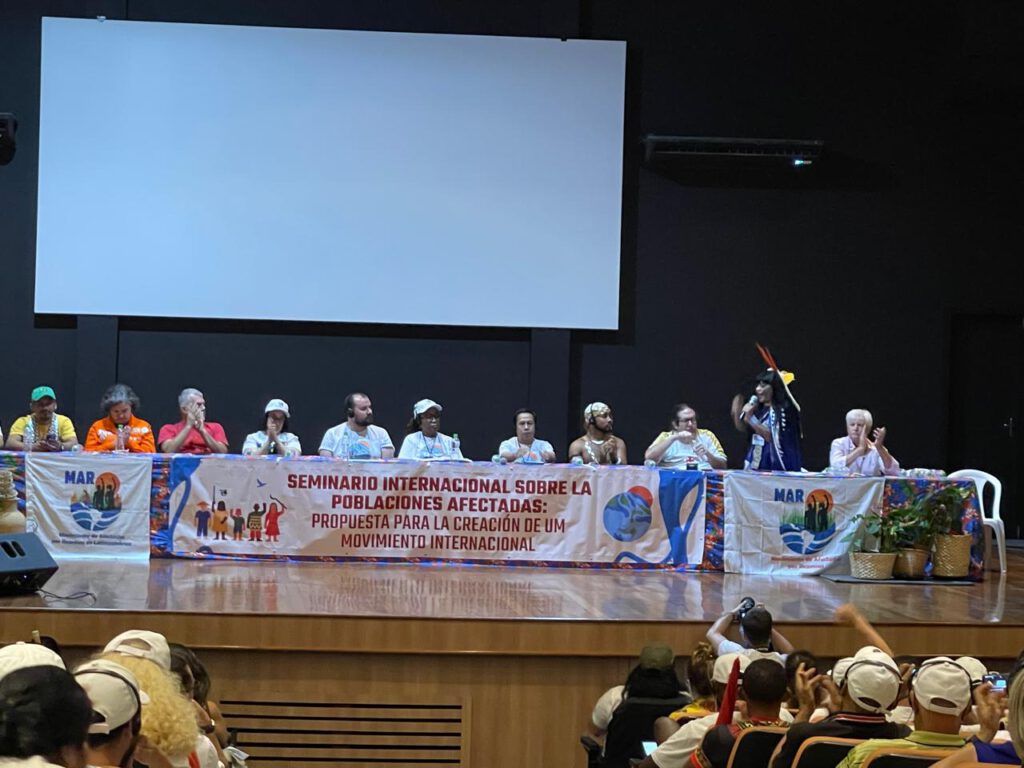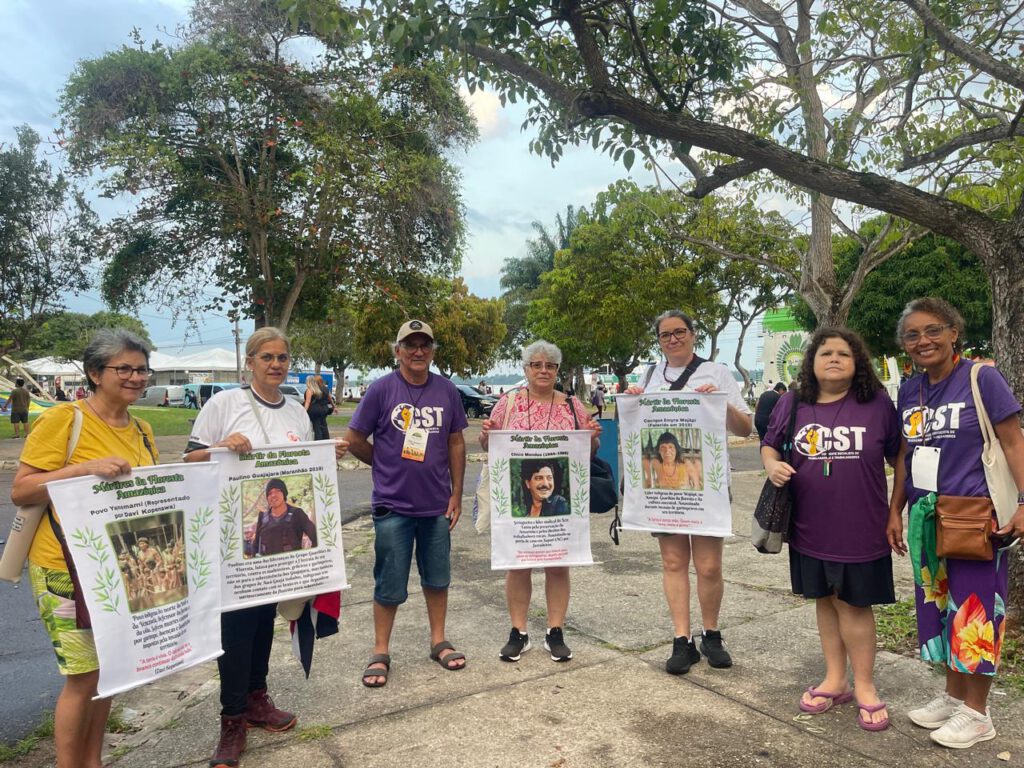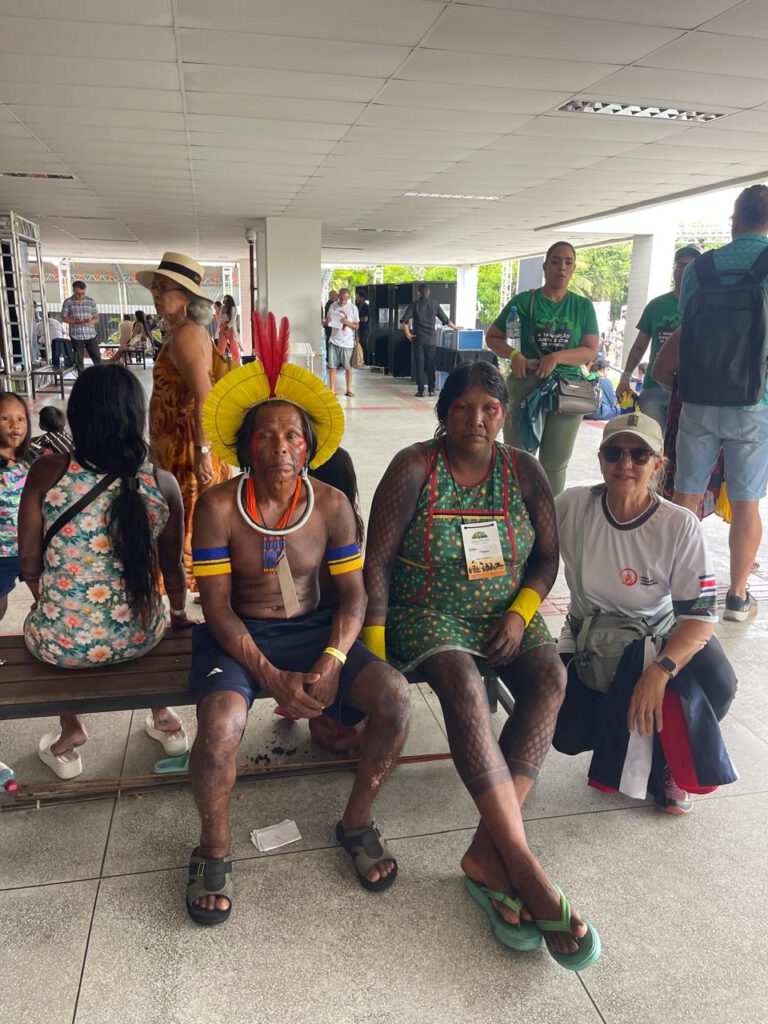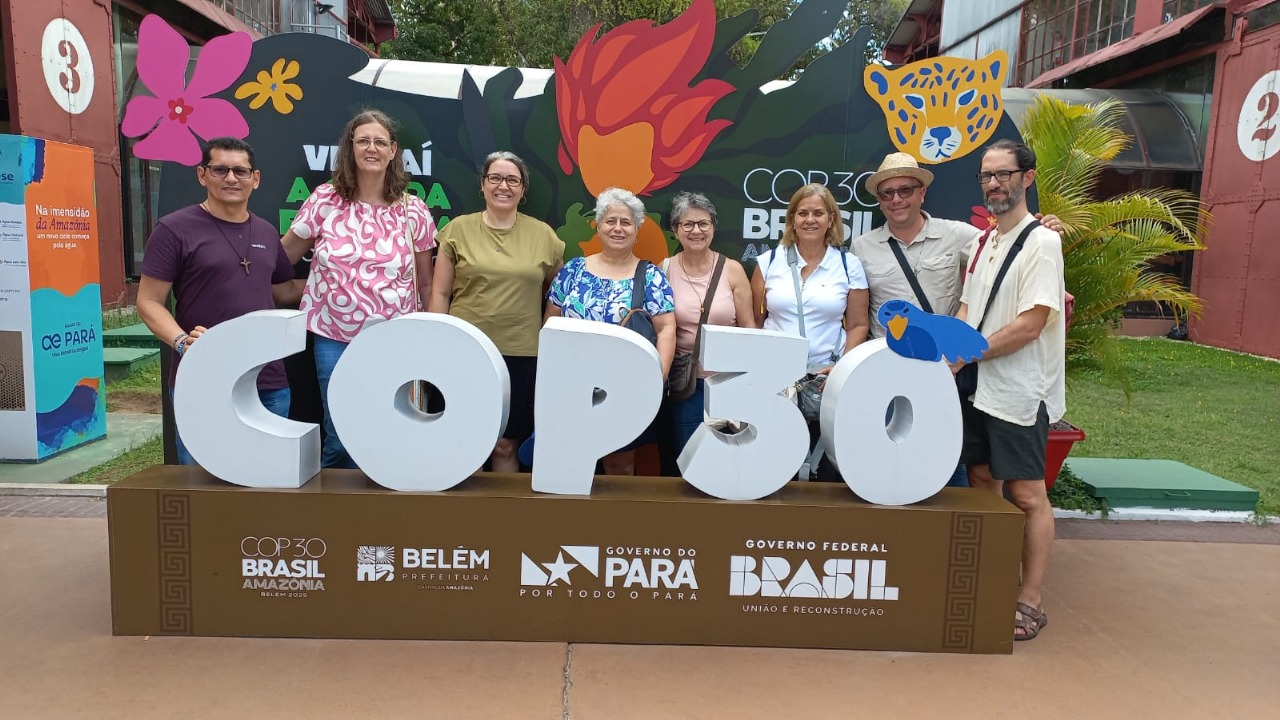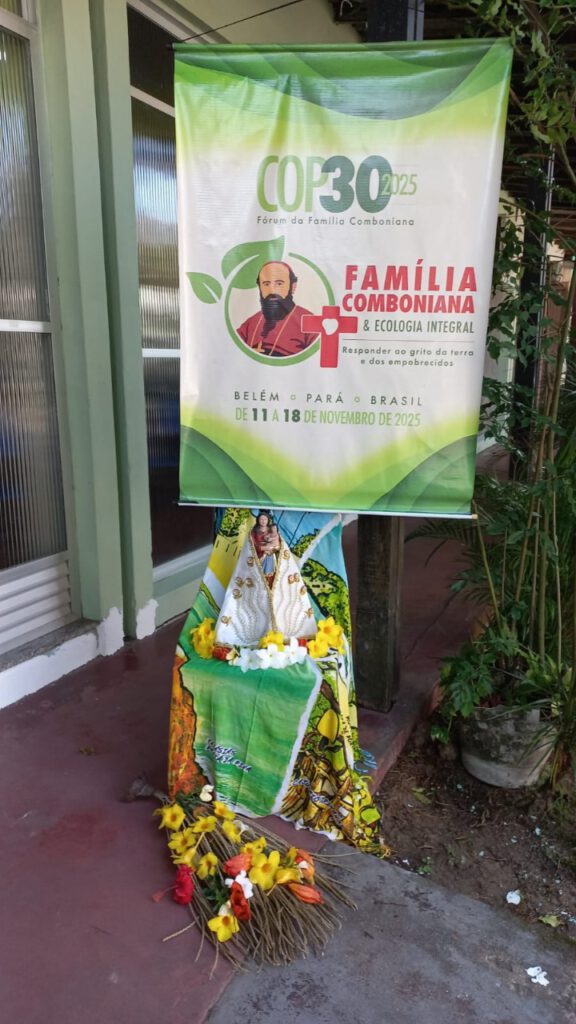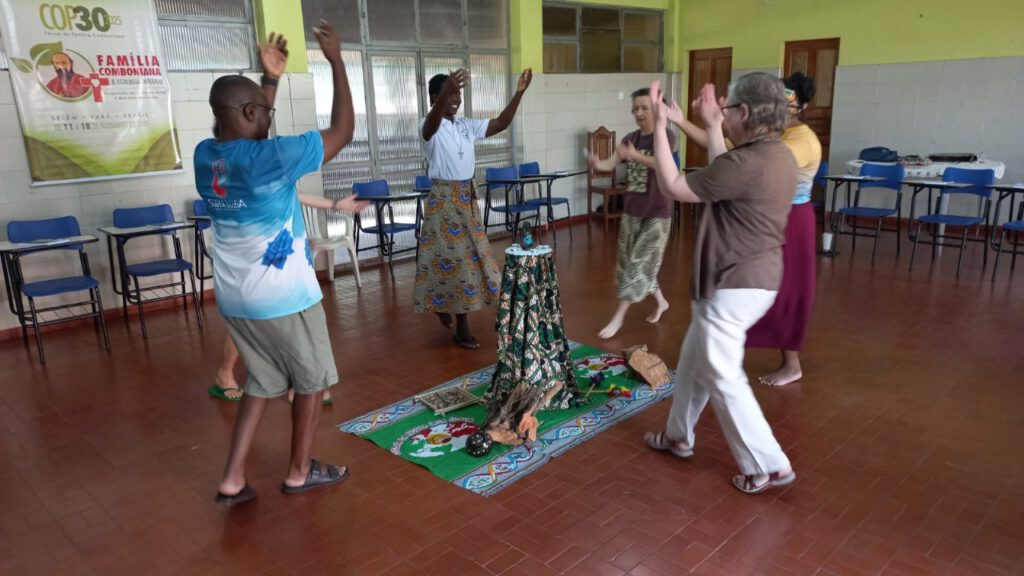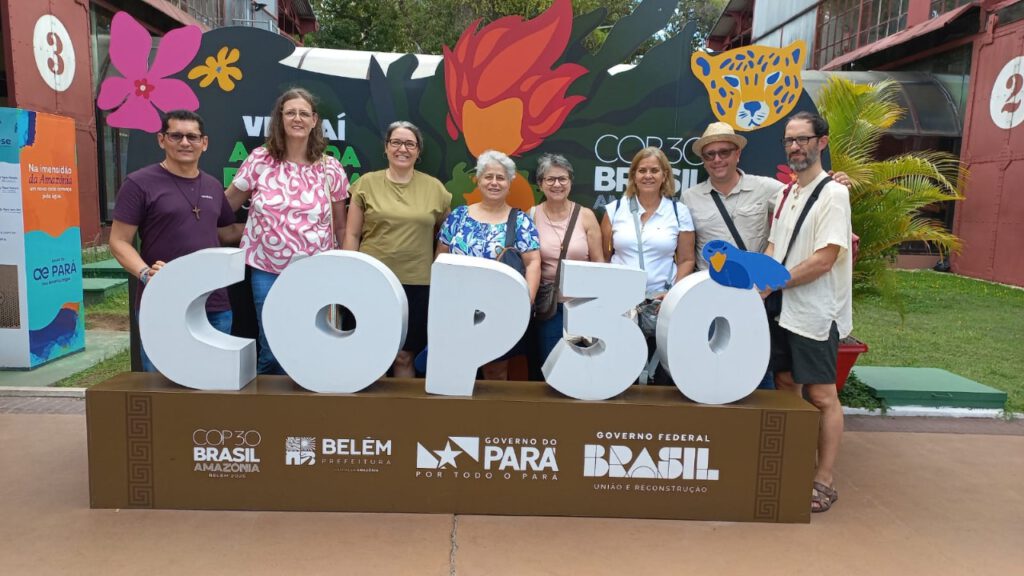Participating in COP-30 in November 2025 and the Comboni Family Forum was a very memorable experience in my life. These were intense days of listening, learning, and sharing, during which I was able to closely follow important debates on climate justice, care for our Common Home, and the defense of peoples and territories.
During those days, I had some very meaningful experiences, such as Tapiri, a space for interreligious dialogue marked by respect, listening, and diversity of beliefs. I also had the opportunity to learn more about the work that the Comboni Missionaries do in other countries, which broadened my view of the struggles, challenges, and commitments undertaken in different realities.

Another very important moment was the visit to the community of Piquiá. This visit allowed us to present to the participants of the Comboni Family Forum, who came from outside, a little of our history, our struggles, and the resistance of our people. They visited the Frei Tito Community Center and also communities in the interior. It was a moment of sharing, visibility, and strengthening of our collective journey.

It was very good to see people again, talk to new people, and learn about different cultures. I take with me every conversation, every lesson learned, and every story lived. It was a remarkable experience, and I returned even stronger to continue on the journey, with faith, responsibility, and commitment to social and environmental transformation.
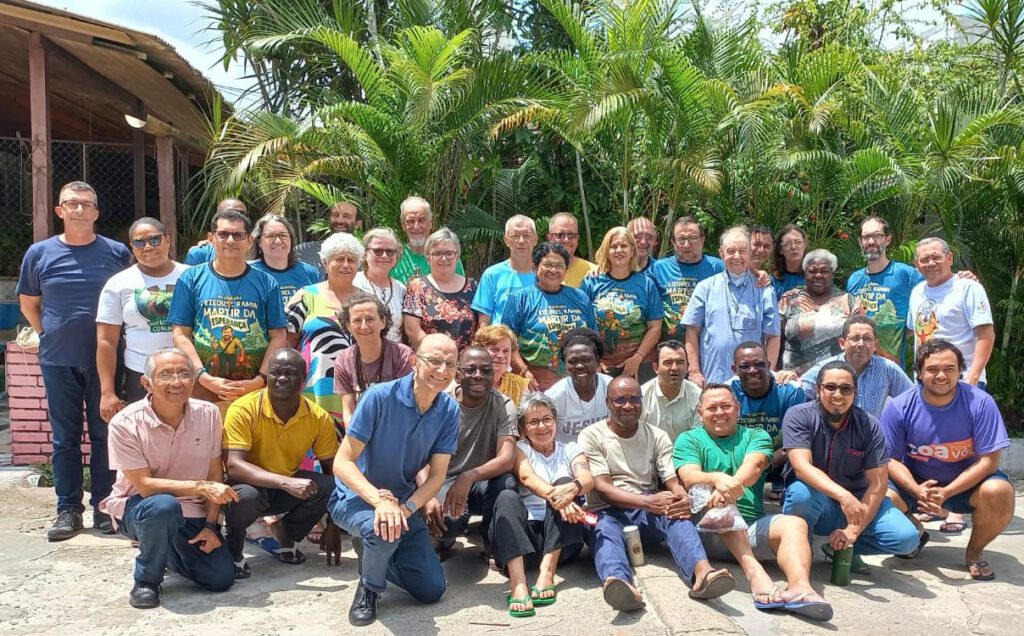
Mainara Bezerra, young woman from Piquiá/MA/Brazil




